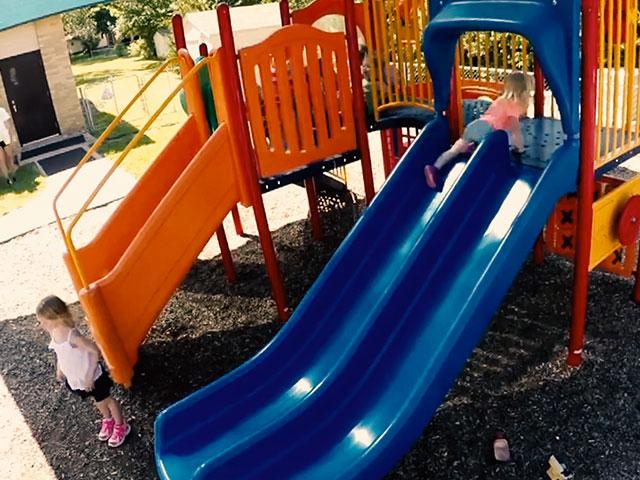Parents are often unaware their child isn't getting recess. The health benefits of free play outside are enormous. However, the type of recess or more importantly, whether the kids get recess at all, is often up to the teacher's discretion. Most parents don't know this.
Kids should have unstructured play outside for at least 30 minutes a day, as research shows it:
- improves test scores, especially in math
- causes kids to listen better and concentrate more in class
- fosters fantasy, imagination and creativity.
That's why it's important to ask your child every day whether he or she went outside for recess. Ask what they did and try to gauge how long he or she played. If your child isn't going outside as often as you'd like, ideally, every day, sometimes twice a day for the younger ones, call your school and complain. Schools respond to parental intervention.
Many school districts allow teachers great flexibility when it comes to recess. For example, teachers have the option to keep the children inside and use the time allotted for recess to catch-up on instruction instead. This is a problem and is the primary reason kids aren't getting recess. Teachers don't have enough time to do everything required of them, so they use recess time to buy a little more time.
Before we start bashing teachers, we should understand that these wonderful, unselfish, hard-working professionals are under enormous pressure to meet minimum education standards. It's easy to see why they feel anxiety about demands to meet these requirements, but the answer isn't teaching when the kids should be outside.
Teachers sometimes keep their students inside for recess if the weather is cold, even though cold temperatures are usually fine for the children who are moving around, albeit uncomfortable for teachers who are standing still monitoring the kids. Playing board games or doing puzzles are not adequate substitutions for running around outside in the fresh air.
Sometimes teachers use recess as a punishment so that if children are misbehaving, recess is often the one thing they take away from them.
Obviously, recess is great for the physical health of the youngsters. It's often the only exercise some kids get. Today's parents probably wisely feel it's unsafe allowing their children to wander the neighborhood after school unsupervised like we did "back in the old days."
Of course, many children get exercise after school by participating in sports teams, but even that type of exercise doesn't take the place of recess. That's because team sports are very structured. On the other hand, recess is all about self-created play, which provides much greater mental stimulation.
"One of the things about kids who haven't enough time to play is they get bored very quickly because they've never had the opportunity, the time, to engage in activities, create their own activities and so on," said psychologist David Elkind, who wrote The Power of Play,
"And they always have things given to them, so when they're left with free time they don't know what to do and therefore they say 'I'm bored,'" he added.
So parents, this school year do your own homework. Check up on how often your child is engaging in unstructured play outside at recess. If it's not enough, speak up.










